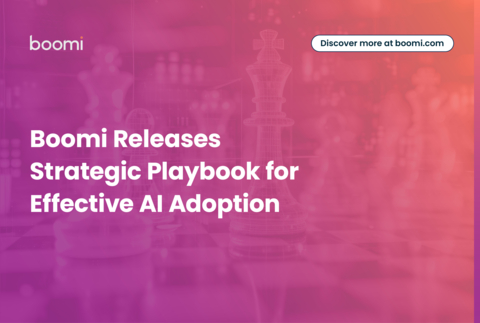As businesses grapple with ambitious AI predictions — such as PwC's forecast that AI could contribute an astounding $15.7 trillion to global GDP by 20301 — major hurdles remain in the journey from pilot projects to enterprise-wide deployment. As an example, just 5.4% of US businesses utilized AI to produce a product or service in 2024,2 signifying a pressing need for strategic and organizational shifts to leverage AI effectively.
Key findings from the report highlight the following trends and challenges:
- AI ambitions are substantial, but few have scaled beyond pilots. Fully 95% of companies surveyed are already using AI and 99% expect to in the future. But few organizations have graduated beyond pilot projects: 76% have deployed AI in just one to three use cases. As half of companies expect to fully deploy AI across all business functions within two years, this year is key to establishing foundations for enterprise-wide AI.
- AI-readiness spending is slated to rise significantly. Overall, AI spending in 2022 and 2023 was modest or flat for most companies, with only one in four increasing their spending by more than a quarter. That is set to change in 2024, with nine in ten respondents expecting to increase AI spending on data readiness (including platform modernization, cloud migration, and data quality) and in adjacent areas like strategy, cultural change, and business models. Four in ten expect to increase spending by 10 to 24%, and one-third expect to increase spending by 25 to 49%.
- Data liquidity is one of the most important attributes for AI deployment. The ability to seamlessly access, combine, and analyze data from various sources enables firms to extract relevant information and apply it effectively to specific business scenarios. It also eliminates the need to sift through vast data repositories, as the data is already curated and tailored to the task at hand.
- Data quality is a major limitation for AI deployment. Half of respondents cite data quality as the most limiting data issue in deployment. This is especially true for larger firms with more data and substantial investments in legacy IT infrastructure. Companies with revenues of over $10 billion are the most likely to cite both data quality and data infrastructure as limiters, suggesting that organizations presiding over larger data repositories find the problem substantially harder.
- Companies are not rushing into AI. Nearly all organizations (98%) say they are willing to forgo being the first to use AI if that ensures they can deliver it safely and securely. Governance, security, and privacy are the biggest brake on the speed of AI deployment, cited by 45% of respondents (and a full 65% of respondents from the largest companies).
“Over the last year, organizations have come to understand the power and potential of AI,” said Matt McLarty, CTO at Boomi. “This year, those organizations are seeking to shift from small pilots to enterprise-wide deployment of AI at scale.”
“A Playbook for Crafting AI Strategy” can assist with the next steps of an AI journey, offering the following principles as guidance:
- This is a critical year for building AI foundations. As organizations strive to meet ambitious short-term AI goals, they are discovering that having the right data foundation is critical. Organizations are doubling down on investments in data quality, data liquidity, and IT infrastructure.
- The highest-leverage AI use cases drive targeted, business-specific results. Although general-purpose generative AI use cases are increasingly simple to implement, they are equally available to competitors and customers. The most valuable use cases are those that create unique competitive advantages for the business.
- Financial considerations and partnerships are key. This year, the costs of AI — from GPUs to skilled talent to energy consumption — must be accounted for, and a realistic approach to measuring AI’s ROI must be developed. Because few organizations will go it alone when it comes to AI, making decisions about the right partners, vendors, and tools will be essential to most companies’ AI futures.
- Speed of AI adoption is being moderated by a realistic assessment of its risks. Organizations are rightly cautious about the risks posed by injudicious use of AI, and essentially all agree that caution is preferable to first-mover advantage when scaling AI. An emerging regulatory environment and a better understanding of how the risks of AI can be mitigated should serve to speed adoption.
“The biggest factor holding back AI implementation is not knowing where to start,” said Matt McLarty, CTO at Boomi. “You don’t actually have to be an expert on how to create generative AI in order to get value from generative AI. As organizations seek to harness AI's transformative potential, our report serves as a crucial playbook, guiding business leaders through the complexities of AI strategy formulation.”
Download the complete report, “A Playbook for Crafting AI Strategy.”
Additional Resources
- Learn more about the Boomi Enterprise Platform
- Follow Boomi on X (Twitter), LinkedIn, Facebook, and YouTube
About Boomi
Boomi, the intelligent integration and automation leader, helps organizations around the world automate and streamline critical processes to achieve business outcomes faster. Harnessing advanced AI capabilities, the Boomi Enterprise Platform seamlessly connects systems and manages data flows with API management, integration, data management, and AI orchestration in one comprehensive solution. With a customer base exceeding 20,000 companies globally and a rapidly expanding network of 800+ partners, Boomi is revolutionizing the way enterprises of all sizes achieve business agility and operational excellence. Discover more at boomi.com.
© 2024 Boomi, LP. Boomi, the ‘B’ logo, and Boomiverse are trademarks of Boomi, LP or its subsidiaries or affiliates. All rights reserved. Other names or marks may be the trademarks of their respective owners.
__________________________
1 Sizing the prize: What’s the real value of AI for your business and how can you capitalise?” PwC, 2017, https://preview.thenewsmarket.com/Previews/PWC/DocumentAssets/476830.pdf.
2 Richard Vanderford, “Generative AI Isn’t Ubiquitous in the Business World—at Least Not Yet,” The Wall Street Journal, April 7, 2024, https://www.wsj.com/articles/generative-ai-isnt-ubiquitous-in-the-business-worldat-least-not-yet-07c07f01?mod=tech_lead_pos3.

_(002).jpg)



